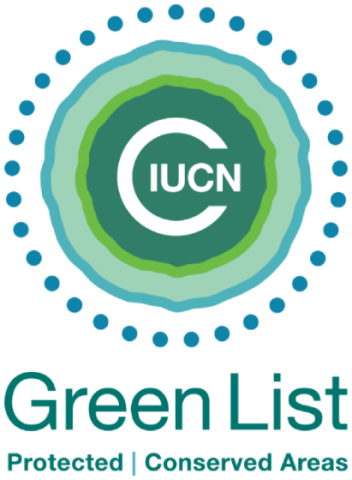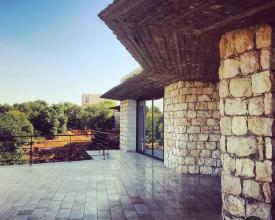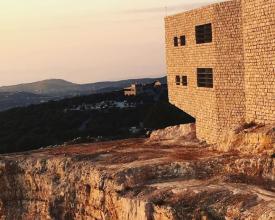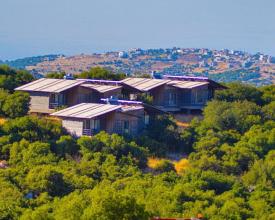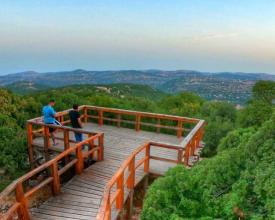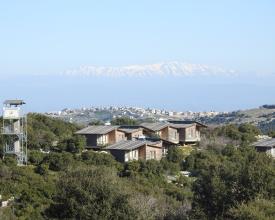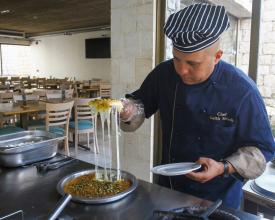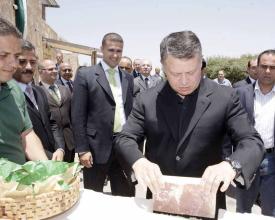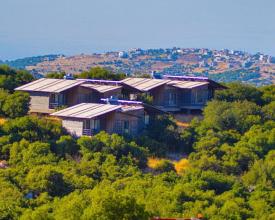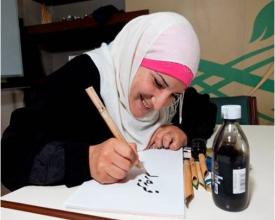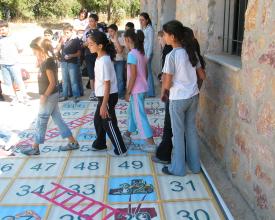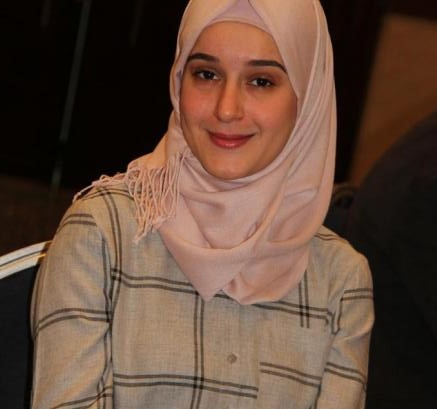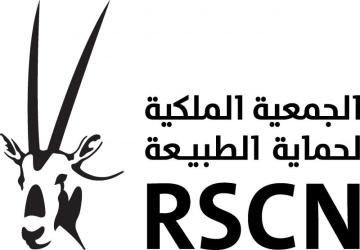
Ajloun Forest Reserve Is A leading model for Conservation of Nature and Developing the local community
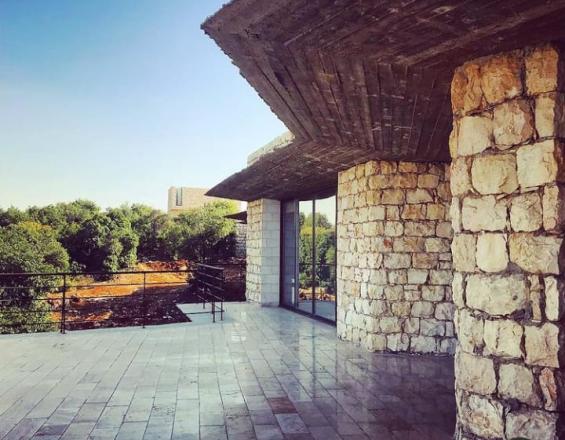
Ajloun Reserve which is a RSCN ( the Royal Society for the Conservation of Nature) managed protected area covers 12 km2 from the remaining fragile and fragmented forest patches in northern Jordan. The RSCN’s main approach to ensure the integration of the local communities into the conservation programs is by establishing nature-based low-impact eco-tourism initiatives.
The area of the reserve barely received any visitors before we developed the eco-tourism infrastructure and facilities that serve both the day visitors such as various hiking trails, restaurants, or accommodation cabins that attract nature lovers who desire to stay overnights in the area. We made sure that our ecotourism products depended on natural and cultural resources, low level of technology with a low negative impact on nature respecting the carrying capacity of the site.
Context
Challenges addressed
Environmental challenges:
1. Forest in Jordan covers less than 1 % and due to the economic situation in the rural areas the forests suffer from cutting trees to use the wood for heating in winter. Due to the existence of many unofficial access points into the reserve, people enter the reserve for the illegal purpose of woodcutting, grazing or hunting.
3. Ajloun suffers from mass tourism and a high number of 1-day visitors who come here to picnic and leave behind piles of trash.
Social and Economic Challenges:
1. High unemployment and poverty in the region.
2.Women prior 2006 were not allowed to work outside their homes due to the locals traditions which still last.
3.Ajloun Governorate is one of the governorates that is not allowed to build manufactures or to receive industrial investments. The locals work mostly at the agriculture sector or governmental jobs .
Location
Process
Summary of the process
In parallel with the development of infrastructure and an improvement of services, there must be a development in the tourism programs provided to achieve the desired goals. It is also necessary to raise and build the capacity of local communities to be the leaders in their hand to advance the local communities and to record success stories.
The development in the reserve coincided with building the capabilities of its workers and increasing their number, which contributed to highlighting the reserve and became an important station for official visits. At the same time it recorded international successes and obtained an award as one of the 100 best sustainable sites in the world, and also joined the green list of the International Union for Conservation of Nature.
Building Blocks
Sustainable programs to enhance the well being of the locals
Ajloun Reserve which was established in 1987 covers 12 km2 from the remaining fragile and fragmented forest patches in northern Jordan, In 2004 eco-tourism concept was introduced to the reserve, 10 tented bungalows and a summer restaurant were built, we created various hiking trails that connect the reserve with the surrounding villages and archeological sites. In 2009 we built 5 new cabins with private facilities, the occupancy rates increased significantly and the demand for the cabins was very high hence in 2012 we received a grant from the Ministry of Planning to build 8 cabins and a winter restaurant.
In 2009 HRM King Abdullah II laid the foundation stone of the Royal Academy for Nature Conservation and it was officially opened by HRH the Crown Prince. The building consists of an educational center, Socioeconomic projects for the locals and a restaurant. In 2016 we converted the old bungalows to new cabins with private facilities.
The reserve became a very famous and unique tourist attraction, we receive visitors from all the different social classes including HRM the Queen and other members of the Royal family.
Enabling factors
The natural resources help to develop this concept.
- People are suffering from poverty and unequal opportunities.
- Gaining wider public support to proceed developing the programs.
- Local community engagement is a key factor.
- Gaining the support from donors to develop this concept.
Lesson learned
- determination leads you to success
- particapatory approach is very important at the local comunities
- failing is an important knowledge tool
- by supporting the local comunity and building their capacities you suport the whole comunity
Resources
The Role of Ecotourism in supporting socio-economic development in Ajloun Forest Reserve
The area of the reserve barely received any visitors before we developed the eco-tourism infrastructure and facilities that serve both the day visitors such as various hiking trails, restaurants, or accommodation cabins that attract nature lovers who desire to stay overnights in the area. We made sure that our ecotourism products depended on natural and cultural resources, low level of technology with a low negative impact on nature respecting the carrying capacity of the site.
We also linked the reserve with the surrounding historical and cultural attractions to create benefits and alternative income for the people living around the reserve who we assisted in the rehabilitation of their houses that are located along the hiking trails to be stop points for food and beverage.
Last year we made a qualitative leap in tourism by launching a Zip-line game that significantly contributed in enriching the experience of the visitors of the reserve, we also enhanced many of our trails and added more signs to guide the path and give more information about the reserve and its biodiversity.
Enabling factors
The Eco-tourism and Socio-economic projects created income-generating nature-inspired jobs that contribute to the sustainable development of the reserve and its conservation programs, and provide economic benefits to the locals and help developing this rural area and its inhabitants by enhancing the infrastructure and the needed services like electricity, roads, and water.
we changed the locals' attitude towards nature conservation and helps them understand and value their natural heritage, and to ensure that we provided educational programs to children
Lesson learned
- helping nature=helping people
- large segment of locals support all the reserve programs
- empowering women means empowering the whole community
- the reserve becomes a role model in developing the local comunity
Resources
Impacts
Ajloun Reserve became an "Economic Driver " in the low-income governorate as it contributed in creating number of job opportunities (65 full-time staff, all locals).
The yearly “Protected Area Benefits” report shows that in 2019, the reserve expenses were 832000 JDs, mostly spent as salaries, goods, and services procured from local communities.
The Eco-tourism and Socio-economic projects created income-generating nature-inspired jobs that contribute to the sustainable development of the reserve and its conservation programs, and at the same time provide economic benefits to the locals and help developing this rural area and its inhabitants by enhancing the infrastructure and the needed services like electricity, roads, and water.
These projects changed the locals' attitude towards nature conservation and helped them to understand and value their natural heritage. We have provided educational programs to local children and students living around the reserve to teach them about nature conservation hoping that one day they’ll become local community leaders and change the perception/views of the local community around the reserves and become more committed towards the protection of nature.
Beneficiaries
Direct:Ajloun Forest Reserve Staff - 65 full time, local staff, 25 are women working inside the socioeconomic projects and catering.
Indirect: more than 200 local families benefitting from the reserve programs.
Sustainable Development Goals
Story
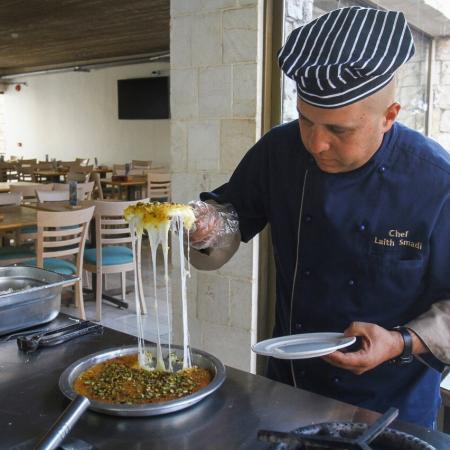
37 years old Laith Smadi was an employee at a small dessert shop in a town of Ajloun governorate. Through the project (PLEDJ) in Ajloun which is funded by the EU Delegation to Jordan, he received a small grant for his eco-friendly business idea. With the grant, he managed to open an Ajloun Reserve Restaurant.
A Leap of Determination
“I used to make 200 JDs as an employee, I’m now the chef and manager of two major restaurants in my home town of Ajloun thanks to the grant from the EU” says Laith who has experienced a great change in his income and saw that change reflected on his family as it helped him by saying that “it feels great to be able to provide a better life for my wife and kids”.
With determination, years of experience in food production and a newly acquired knowledge in project management, finance and latest tips and tricks in the kitchen thanks to a series of training workshops preluding the implementation of his business project; Laith’s kitchen now contains cooking equipment worth tens of thousands of Jordanian dinars.
Though he has a vast experience participating in events held by major hotels in Amman and the Dead Sea, he admits that he “knew nothing about management or finance before.” What he learned was very useful in managing his restaurant.
Thriving hand in hand
Laith has recently set up a new beautiful restaurant at the Royal Academy for Nature Conservation in Ajloun growing his staff members from the local community to twenty men and women, many of them couldn’t find a job before either due to lack of job opportunities or because of the conservative nature of the society which limits women’s choices when trying to find a job. He has “trained some of the staff for a while and now they are very good at what they do”.
He is very proud of his women colleagues who challenged social norms and proved themselves equal to men at work. One of those strong women started as a steward and became the assistant chef, supervising all staff members who are majorly men.
When it comes to food, Laith has several agreements with providers from the local community. The two restaurants are “fully dependent on the local produce”. “I hand-pick the items myself most of the time to ensure high quality” he adds.
The two restaurants follow Ajloun’s Natural Reserve environmental and eco-tourism standards and regulations and are model sustainable environment-friendly businesses that can be replicated by other entrepreneurs in the region.
